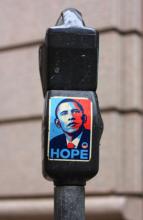Tuning In
Diasporic Contact Zones at the BBC World Service

You are here
- Home
- Translations: A Comparative Study of Online News at the BBC World Service
Translations: A Comparative Study of Online News at the BBC World Service

Aims
- To understand translation processes at BBC World Service.
- To compare and contrast BBCWS online news in English and Arabic, Persian, Spanish, Turkish, Chines and Urdu looking at translation and editorial choices.
- To assess the extent to which the BBCWS seeks and/or achieves editorial consistence across its diverse output.
Key questions
- Does the BBCWS speak with one voice or many?
- How does the BBCWS mange the task of ensuring a degree of editorial consistency across news output, and at the same time, translating and creating news (in this case about US elections) for very diverse audiences around the world with diffeent kinds of investment in US elections?
- How are core concepts related to the US elections treated/translated (leadership, citizenshop, participation, legitimacy, authroity, charisma, democracy)
Methods
1. Translation and Discourse Analysis
Analysis of on line news outputs in English and 6 other languages.
We will analyse the online output comparing and contrasting news in English (Source Language or SL) and in the target language (target language) using a combination of techniques drawing on intercultural communication, narrative and discourse analysis.
2. Interviews with online news producers
We will conduct interviews with online editors and journalists in order to get a better understanding of the context of news production and translation.
3. Observations
Where and when possible observations of editorial meetings/ foreign language desks.
4. Audience reception/user participation
We will examine audience and user participation in “global conversation” about US analysis via BBC in house research when and where possible via on line for a.
Sample Interview Questions
BBC Arabic Services
In order to understand better the wider context in which election news is produced, reported and translated, the interviews for Arabic producers (as for the other language services) would revolve around the following issues.
- What kinds of resources (technology, money, people, stringers, correspondents) are available to BBC Arabic to cover the US elections?
- How is the Arabic service situated in the ecology of BBCWS and BBC Global news production in terms of resources - how much sharing across platforms and different parts of BBC news?
- Are US elections a top priority for BBC Arabic? Is there a particular editorial approach being taken?
- How is US election news being produced and translated by/for BBC Arabic for Middle East audiences in the region and elsewhere?
- How does the tri-platform production work?
- What is the relationship between central English news production and the Arabic desks at Bush House and in the regions?
- How much news output is translated and how much originates from BBC Arabic?
- Any good examples of how US election news is adapted/translated for imagined regional/transnational audiences?
- What kinds of translation issues arise in different language services over US election coverage?
- Are there difficulties, taboos or controversies or conflicts over how certain terms or ideas are translated?
- Why/How do audiences participate in global conversation via ‘Have Your Say’ and other interactive forums and programmes on BBC Arabic about US elections?
Project contact:
Gerd Baumann, University of Amsterdam, g.baumann@uva.nl
- Politics of Translation

